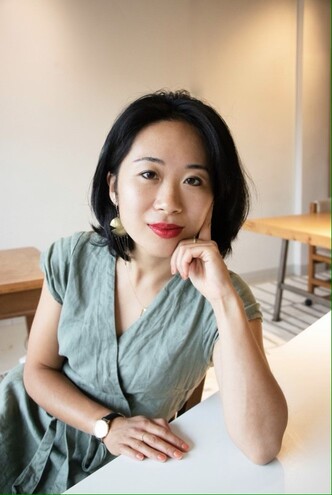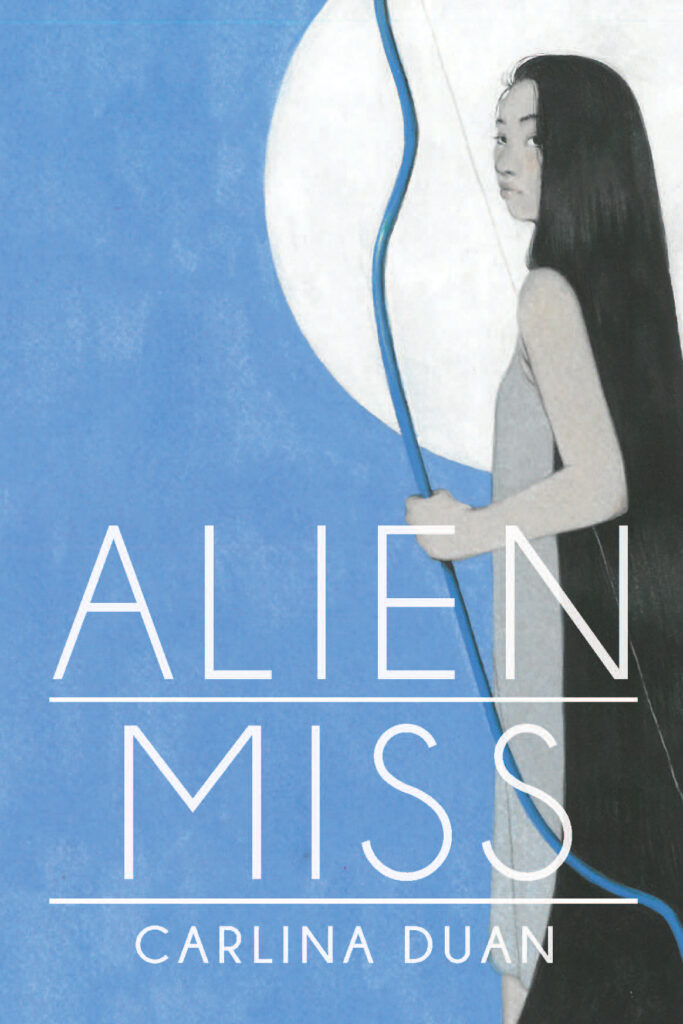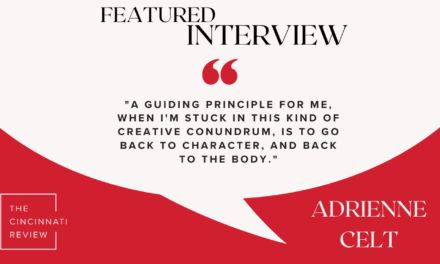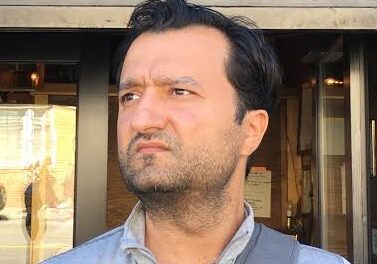Editorial Assistant Hassaan Mirza: In Alien Miss (University of Wisconsin Press, 2021), poet and friend Carlina Duan examines the rudiments of the English language as a point of inquiry and an entry into a regional, national, and artistic culture. That language serves as friction against and in support of the multiple inheritances of the poet: the legacy of Asian immigrant families and women’s space in it, the legacy of poets of color wrestling for nuanced portrait of their communities, and the legacy of the original Chinese immigrants to America who were ostracized and whose entry into the country ultimately led to the Chinese Exclusion Act. In the space of all these tangled and dark histories, Duan is always seeking moments of joy and resilience. In my interview with her (just an excerpt of which is reproduced here), we discussed the complicated questions around examining and inhabiting familial and communal histories.
Writers are often invited to talk about their work just as it enters the world. I’m curious to hear how your relationship with Alien Miss has grown and shifted in the year since its publication?
Since publication, there have been a lot of unexpected people and places that Alien Miss has ended up. There have been a lot of questions that I feel the book has generated for me in the aftermath of publishing it, specifically questions about writing alongside a historical archive and about historical imagination itself. What does it mean to write and reimagine a historical time? And how do you do that ethically and responsibly? Thinking about those kinds of questions has led me to a place where I feel that, if I were to rewrite that book, I think it would look very differently. But I also feel thankful that the book is a portal into what I was thinking and researching and learning at that moment in time when I was writing it.
That question of historical imagination is so interesting. The title of the book comes from a series of poems that feature an almost archetypal character named Alien Miss who moves across geography and history in the poems. Can you talk about how you created her and used her as a vessel for historical inquiry?
During my MFA, I was obsessed with questions around diasporic inheritance and what it means to move from place to place. What does it mean for me, as a child of immigrants, to inherit the history of my body in this particular land and landscape? So, I was always writing around those questions and those themes. But Alien Miss itself as a project started because I wrote the first poem in the book, “Alien Miss.” It was a ghazal that was thinking through this intergenerational, shapeshifting, mythic woman figure who is contemplating questions of power around the English language, with its colonial legacy and history of violence. At the end of that poem, the speaker disintegrates into strange animals and animal shapes, snakes, et cetera, and she hisses back at the reader.
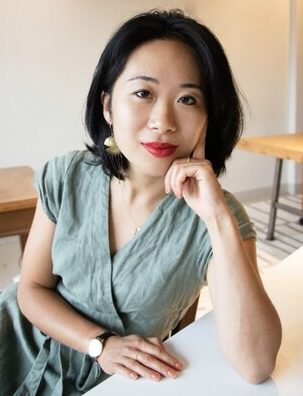
When I finished writing that poem, I felt so perplexed. Like, what did I just create? And it felt like that speaker wasn’t going to leave me. And so that first Alien Miss poem unleashed a lot more Alien Miss poems. Embodied in the shapeshifting speaker, or speakers, they were speaking like a chorus—to borrow Saidiya Hartman’s term—like a chorus of conversing voices. Which allowed me to think specifically about myself, of course, but also about my mom, my grandma, and then these other matriarchal figures that were both a part of and also beyond my immediate familial lineage across time. That’s when I knew that the book was going to look back on Chinese immigration and exclusion from the United States but also in the context of my body and the future.
This discussion of conversing across time and space makes me think back to your questions around the ethics of writing into a historical moment. I particularly admire how you teased out strands of history surrounding Chinese immigrants—from the laborers in the late nineteenth century to the wave of educated middle- and upper-middle-class Chinese immigrants who entered the US after the Chinese Exclusion Act was repealed. What were your thoughts around braiding those very different waves of migrants to construct a sort of cohesive lineage?
That’s such an excellent question and a question that I really grappled with when I was in the preliminary stages of putting the book together. I felt like there was a gap in the book. I’d written about this lineage of Chinese laborers: some who arrived to build railroads, others who were detained at Angel Island, still others who were barred from ever entering the country. But the poems that I was writing about my own familial immigration to the United States represented a very different history, one wherein my family arrived as academics in the late ’90s. Even if we have touched similar regional landscapes as Chinese laborers from the 1880s, it’s impossible to conflate those two experiences.
I wrote the last poem in the Alien Miss sequence, called “Alien Miss Confronts the Author,” as an initial attempt to acknowledge the major limitations in imagining a singular lineage. Within that poem was my initial attempt to grapple with the responsibility of a poet who wants to write into multiple historical lineages.
It seems like you are continuing to work with these questions even after the book’s publication?
Yeah, I think that those questions [asked in “Alien Miss Confronts the Author”] are still there. My work continues to be very much centered around questions about, why do I want to write about the things that I’m writing about? And what are the lines of power and reckoning that I’m towing as a poet who has the full disposal to craft certain images and to invite a certain kind of imagination on behalf of the reader. I think those questions continue to chase after me in my own writing today. In some ways writing “Alien Miss Confronts the Author” felt like one potential response to how I might answer those questions, but it also opened up new possibilities to respond, to continue responding.
Carlina Duan is a writer-educator from Michigan, and the author of the poetry collections I Wore My Blackest Hair (Little A, 2017) and Alien Miss (University of Wisconsin Press, 2021). Carlina received her MFA in poetry from Vanderbilt University. She is currently a doctoral student in the University of Michigan’s Joint Program in English and Education, where she teaches community-engaged writing and documentary poetics. Among many things, she loves river walks, snail mail, and being a sister.
Hassaan Mirza is a writer from Lahore, Pakistan, currently residing in Cincinnati, Ohio, where he teaches and studies fiction at the University of Cincinnati. Hassaan’s work has received support from the New York State Summer Writers Institute, the Norton Island Residency, and Hinge Arts Residency, among others. His work has appeared in Joyland Magazine and Ploughshares.

